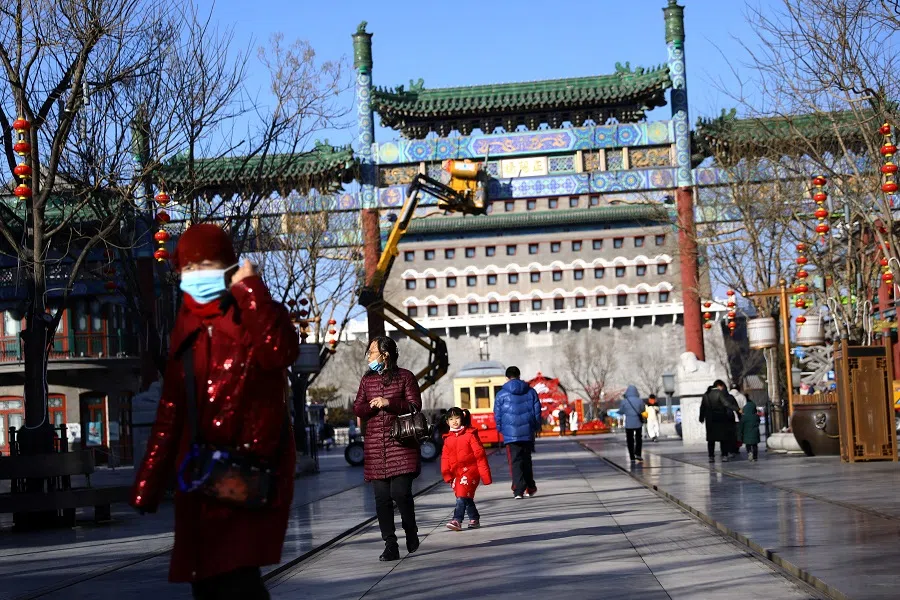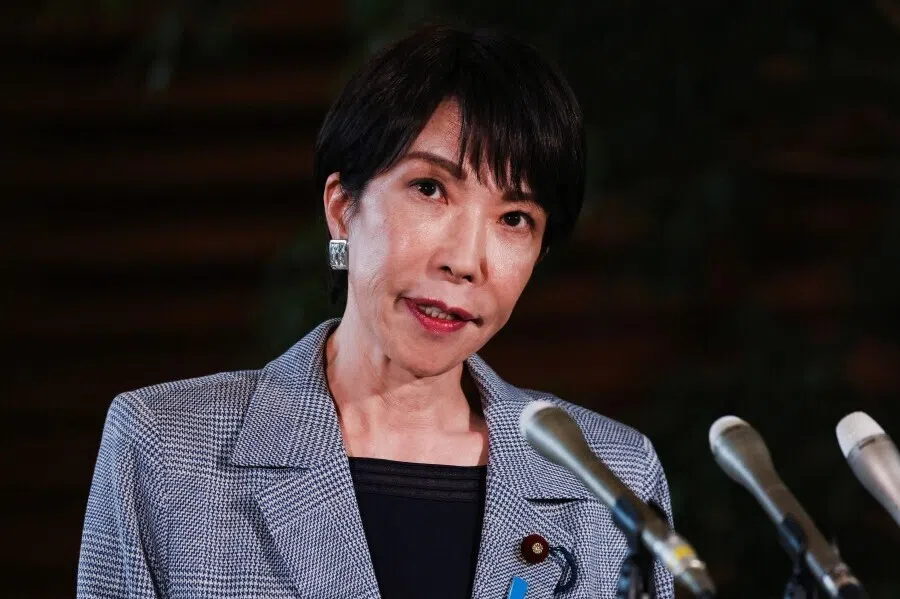Why swear words derogating women have proliferated on the Chinese internet
The use of "national swear" (国骂) in the Chinese language has been a topic of discussion for the past century, with its derogatory nature towards women long known. From seemingly harmless insults to women's intelligence to malicious debasing of female ancestors, why is the use of such language still prevalent on the internet today?

China's internet culture is clearly regressing as we enter the 21st century. On Weibo, Douyin, Kuaishou and even WeChat Moments, nobody gives much thought to the discrimination against women, which has become a trend again, along with the use of the country's "national swear" (国骂).
People's involuntarily use of slangs such as tamade (他妈的), shabi (傻B), baipiao (白嫖), qinshengde (亲生的), xiabibi (瞎逼逼, shut up) and nima (尼玛, a homonym of 你妈, your mother) exposes an alarming collective unconscious. But more disturbingly, they may well reflect the plight of contemporary Chinese women.
Baipiao
The slang baipiao appeared on the internet out of nowhere and quickly became a popular slang on Tieba, Weibo and Douyin. It was originally a commercial term used for sales promotions (in this context, baipiao means to enjoy something at no cost) but was later applied to describing male-female relationships, which created an atrociously damaging effect.
Whenever a poor man tries to find love, bystanders would sneer, "Don't make it seem like you're so pure and noble. You just want to baipiao (patronise a prostitute or have sex for free)!" The speaker would get keyed up as onlookers loudly agree in unison.
While the shot seems to be fired at men, women are actually the ones wounded. First, part of the unspoken context indicates that women are meant to be prostituted; the only difference is whether payment is made. Second, women are seen as promiscuous if they actively pursue men without asking for tangible rewards, which is tantamount to depriving their rights to a sensual life.
Baipiao could be the worst slang that emerged in recent years. The term objectifies women and ignores their innate needs on the one hand, and puts poor men in a bind on the other.

So then, under what circumstances would women not be seen as having been prostituted for nothing? One, if they marry the other party; or two, if they obtain money or its equivalent from the other party. Thus, women are either forced into a siege or treated as a commodity. They are disenchanted, demeaned, defiled and imprisoned. Once they actively conform to this logic, the romantic meaning of marriage is gone, and what remains is the logic of transaction.
Baipiao could be the worst slang that emerged in recent years. The term objectifies women and ignores their innate needs on the one hand, and puts poor men in a bind on the other. In the process of its spread, bride prices have soared and the barriers to marriage have increased. The sword of Damocles has emerged: as women are treated as commodities to be bought, sold, possessed and enjoyed, with the only difference being in the price, some men are deprived of the right to fall in love or even get married.
A reminder has thus been sounded: women should either stay loyal to their original partner, remain single or become an outcast in a reconstituted family.
Qinshengde
Among the contemporary slang involving women, the term qinshengde (lit. biological child) emerged relatively later but nonetheless elicits a different kind of malice. While it seemingly evokes the warmth of familial relationships, it in fact highlights the brutal disregard for non-blood relations. (NB: Parents would commonly use the phrase qinshengde when they become angry with their children. In order to pacify their own emotions, they would mutter to themselves "qinshengde, qinshengde" to remind themselves that they should be more patient with their children.)
Such terms insinuate a grave warning for women: if you end up with a divorce, you would be relegated to a second- or third-class role in your next marriage and become an inconsequential stepmother.
A reminder has thus been sounded: women should either stay loyal to their original partner, remain single or become an outcast in a reconstituted family. An invisible fence has been erected - a woman's small world is cut down further, the little freedom that she has is taken away, and her already inadequate life is further restricted.

Ironically, many women enjoy propagating this term. When they subconsciously proclaim that the child is indeed their own or that they are truly the child's biological mother, they are in fact tying themselves up with invisible chains.
Ridiculously, some women seem to enjoy such a positioning and even self-identify as "bimbos" (笨蛋美女)!
From 'bimbo' to shabi
With the proliferation of the aforementioned slang, it is clear that women are treated as inferior beings: they are deemed emotional, physically weak and less intelligent than men. When describing a person as stupid (傻), people may subconsciously use the term shabi (dumb woman).
While the term smells of patriarchy that professes the inferiority of women, it has now infiltrated the internet. Ridiculously, some women seem to enjoy such a positioning and even self-identify as "bimbos" (笨蛋美女)!
To some internet celebrities, "bimbo" is an endearing term. For example, a Weibo user wrote, "Damn, you're so gentle! You called me stupid but I am falling in love with you! Somebody save me!" This type of rhetoric is the same as admitting that one has poor intelligence and low status, and is a brainless reproductive tool.
At the same time, the speaker is also conforming to society's appeal to women to get married, have children and "raise children for the purpose of being looked after in old age" (养儿防老). Following this development, we see more of China's national swears against women that have been revived, proliferated and popularised. And we could question if people have returned to the cultural environment of the era prior to the May Fourth Movement.
Hence, not only has the term remained on the Chinese internet in the 21st century, a larger language family has even been derived from tamade.
Tamade
In fact, if we trace the origins of the aforementioned slang, they could all be derived from the national swear tamade (lit. their mother's). One, while the most damaging modern slang "baipiao fantasy" (白嫖幻想) is directed towards the female parent of the other party, spewing the term tamade could evoke numerous vicious associations. Two, while qinshengde implicates one's biological mother, cursing the latter directly hits the nail on the head. Three, as women are generally seen as inferior beings, "tama" (他妈, their mother) is definitely not intelligent and so naturally becomes an object of ridicule.

Hence, not only has the term remained on the Chinese internet in the 21st century, a larger language family has even been derived from tamade. Apart from this classic swear, terms such as nima, mabei (妈杯, another term for nima), xiabibi and shabi (煞笔, a homonym of 傻B) have also emerged.
I have also observed that these expressions are not only commonly used among ordinary netizens but also among the "Big Vs" (大V or verified internet celebrities) including writers, screenwriters and actors. For example, Weibo users Maguashihang (鹦鹉史航, screenwriter Shi Hang), Yimei Pofu (一枚泼妇, author Fang Lei) and Yin Shihang 77 (殷世航77, internet celebrity Yin Shihang) have all used such expressions.
Film director Liu Chun and a few others seem to have realised the sexist implications of such terms and switched to using expressions such as nidaye (你大爷, your elders), which is more empathetic towards women. Similar to baipiao, qinshengde and "bimbo", these terms propagate the patriarchal values that objectify women as desirable things.
When a man feels insecure, angry, excited or bored, he often uses such terms that insult the female ancestors and elders, sisters and even female descendents.
When a person wants to humiliate another, they often position the other party's female elders as slaves that can be possessed.
Chinese writer Lu Xun examined that the earlier form of tamade possibly came from the phrase "your mother is a lowly being" (而母婢也). This is probable because the base status of a "lowly being" encompasses a wide range of derogatory terms against women. When a person wants to humiliate another, they often position the other party's female elders as slaves that can be possessed.

While there are various derivations of offensive language, the underlying meaning is the same. Lu Xun wrote that while sentences can be of various lengths and one can go from the simplicity of the word "mother" to a lengthy string of offensive words, the meaning is always the same. The expressions always involve the genitalia and the tone of voice is also different from when saying other words, one can always hear the difference.
By imagining that one is in a relationship with the other party's female elders and other female relatives and friends, an illusory advantage seems to have appeared: one becomes a subject with a special sexual power and represents the sky (personified as male) as opposed to the earth (personified as female). Lu Xun noted that while it can indeed become a strategy by which the lower class attacks the upper class, it is not a universal rhetoric but a restoration of gender hierarchy.
Once the speaker completes the reconstruction, women are returned to the general state of oppression. For women who enjoy using these terms, such behaviour is obviously suicidal.
Just as Chinese intellectual Zhang Tongguang has observed, while the term is "violent towards the mother of the one being insulted", it also reflects the plight of all women. He said, "Since the advent of private property, women have become 'reproductive tools' that lack the autonomy or freedom of a 'human being'. They can be coveted and possessed."
By reducing women to a reproductive organ that can be possessed, the speaker conceals the women's intrinsic value and reconstructs gender hierarchies. Once the speaker completes the reconstruction, women are returned to the general state of oppression. For women who enjoy using these terms, such behaviour is obviously suicidal.

Popular slang represents a kind of social psychology and projects a collective consciousness. These expressions violate the contemporary law of equality for all and should not be condoned. In fact, following the start of the May Fourth Movement, national swears were once subject to the scalpel of reason. In a short essay titled "On 'Tamade'" (《论"他妈的"》) published on 19 July 1925, Lu Xun humorously said, "If, as some have put it, the peony is China's national flower, then [tamade] can be considered China's 'national swear'."
Public intellectuals have also confirmed that "national swears" have such a rich history that it can even be considered as the essence of Chinese culture (国粹).
In 1926, Zhang published "A Study of National Swears" (《"国骂"之研究》) and came to a similar conclusion, "I have travelled to the north, south, east and west - of course within China - and came across people from all walks of life. I paid attention to their different dialects but what I remembered clearly was that all of them had expressions similar to tamade."
Following this, articles such as "From National Studies to National Swears" (《从国学说到国骂》, 1930); "National Swears and Local Swears" (《国骂与地方骂》, 1932); and "National Swears" (《"国骂"》, 1934) sprouted up one after another, forming a continuous wave of criticism. Public intellectuals have also confirmed that "national swears" have such a rich history that it can even be considered as the essence of Chinese culture (国粹). By 1939, the academic community came to a consensus that tamade only exposes the twofold darkness of feudal remnants and male-dominated private property ownership:
- It is a legacy of feudalism and exemplifies the "Ah Q spirit" (in Lu Xun's novella The True Story of Ah Q, Ah Q is a fictional character who thrives in "spiritual victories") because it means that, when the first party possesses the mother of the second party, the former becomes the latter's father.
- It is the product of a male-centred society and private property ownership. It not only has the tendency to perpetuate male dominance but also insult women.

Later on, such reflections and criticisms stopped for some time for various complex reasons. However, by the 1980s there was a resurgence of a movement to "emancipate the mind", which once again reinstated the discussion. Author Yu Congyang reflected on this cultural phenomenon in his 1981 article "National Swears Can Be Fixed" (《"国骂"可以修矣》).
He wrote, "During the Cultural Revolution, not only did the social climate deteriorated, but language was also polluted. The 'national swear' tamade, which was criticised by Lu Xun in the 1920s, was pervasive. Language pollution is not to be brushed aside. Expletives and obscenities are what barbarism has left behind. How could material civilisation and profanity come together to form a beautiful modern picture?"
Now, it appears that "national swears" have a strong vitality that Yu did not expect. Not only does it still exist in this decade, a huge language family has even been derived from it. One, there are more expressions involving property, intelligence and marital status; two, more abbreviations and variations have surfaced; and three, various conscious and subconscious expressions are manifestations of the ill symptoms of a mass psyche.
It is worthy of caution because it reflects some deep-rooted social problems. For the sake of everyone's well-being, change must happen.
Related: A Singaporean in China: Can there be justice for trafficked women sold as wives? | 'The world has abandoned me': Chinese women married into slavery? | Was the Tang dynasty the golden era of women's rights in China? | The crux of gender inequality is that men have always objectified women | China's forced drinking culture a submissive test for Chinese women | Death of a Peking University girl: Virginity matters in modern China | No bride price, no marriage in China


![[Big read] Paying for pleasure: Chinese women indulge in handsome male hosts](https://cassette.sphdigital.com.sg/image/thinkchina/c2cf352c4d2ed7e9531e3525a2bd965a52dc4e85ccc026bc16515baab02389ab)

![[Big read] Love is hard to find for millions of rural Chinese men](https://cassette.sphdigital.com.sg/image/thinkchina/16fb62fbcf055b710e38d7679f82264ad682ce8b45542008afeb14d369a94399)
